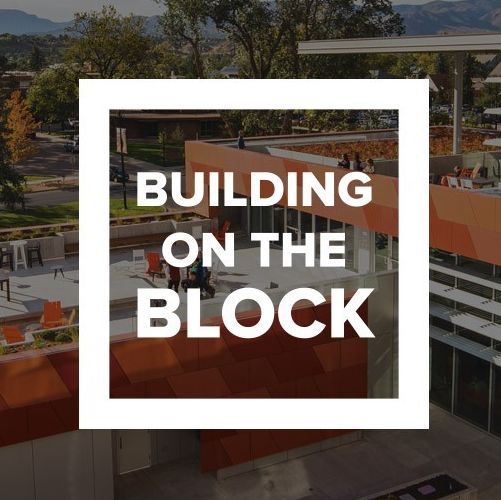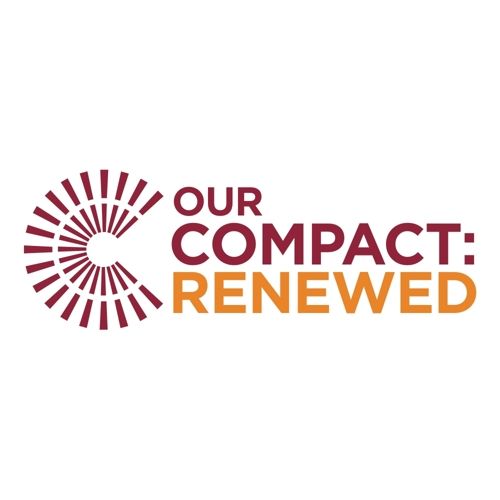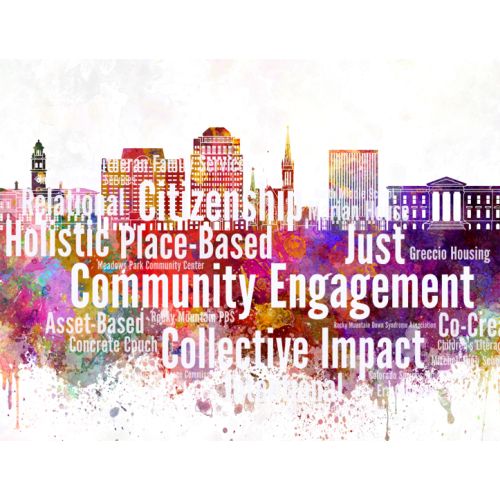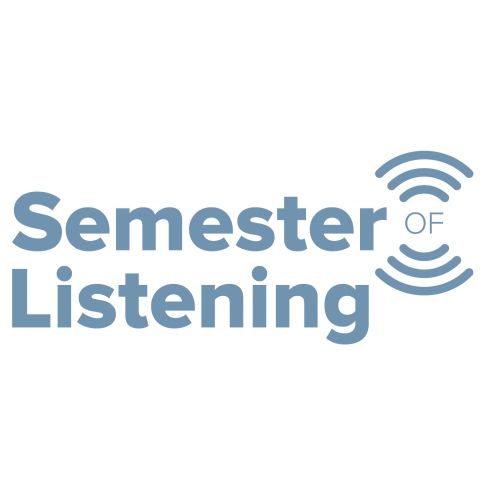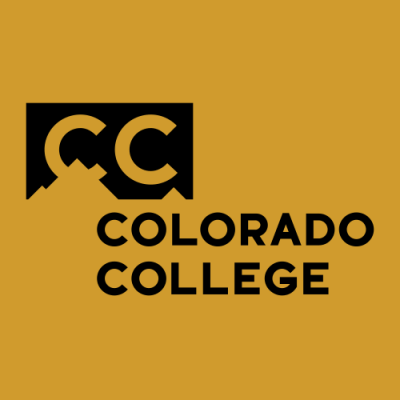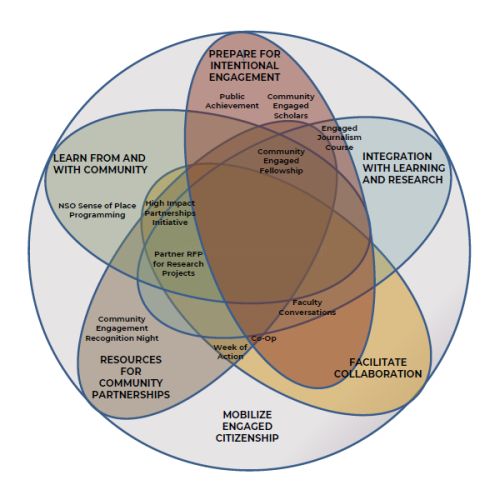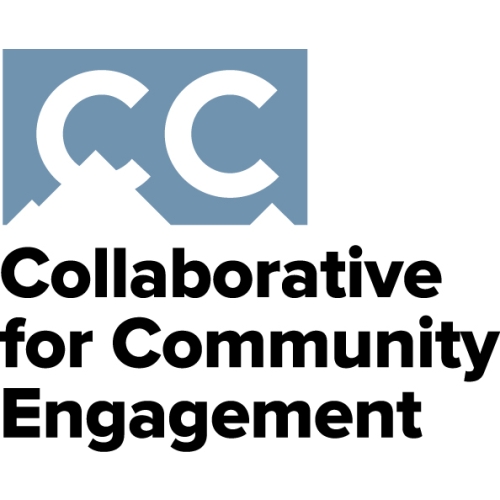
PREPARE FOR INTENTIONAL ENGAGEMENT
How might we better prepare our campus community to engage in intentional ways that attend to individual and institutional positionality, and promote equity, inclusion, and empowerment?
Community engagement is not intrinsically or inevitably impactful - or even beneficial - for communities or students. Knowing how to engage effectively, intentionally, or democratically must be learned. Within the academic division of labor in higher education, students discern what they believe needs to be changed in the world in core disciplines and majors; the field of civic engagement, with a foot in theory and a foot in practice, builds experiential knowledge of how to effect change in the world.
We have the opportunity to build communities of learning and generate spaces for dialogue and reflection that increase our campus capacity to engage more deliberately and effectively. Critically, we can deepen understanding of the intersection between engagement and "positionality" - meaning how one's position in the social and political world shapes one's perspective, voice, and influence in community-engaged work. In other words, the principles of community-engaged practice are not one-size-fits-all; how to best effect change depends on who is engaging and who is being engaged. Additionally, we have an opportunity to better understand our shared positionality as a part of Colorado College; we must ensure that as an institution of higher education we engage with - not for - communities beyond our campus. The CCE can build spaces in which our campus grapples with how to engage in intentional, humble, beneficial ways that attend to and do not reinforce inequalities and privilege.
POSITIONALITY
We can deepen understanding of the intersection between engagement and "positionality" - how one's position in the social and political world shapes one's perspective, voice, and influence in community-engaged work.
Goals
-
Promote student learning and reflection around the intersection of community-engaged work and positionality, power, and privilege.
-
Embed intentional, equitable and inclusive community-engaged language and practices across CC.
-
Regularly assess the extent to which CCE impacts, practices, and language are diverse, equitable, and inclusive.
-
Engage diverse perspectives, identities, and stakeholders in community-engaged teaching, learning, and practice.
-
Practice and showcase equitable, inclusive, empowering forms of community engagement.
Strategic Initiatives
Bonner Fellowship
This four-year, developmental fellowship aims to cultivate civic leadership in students who seek to transform their communities and our world. Fellows develop knowledge of pressing issues facing our society, and build experience working directly on those problems with community partners. Fellows are engaged in community work throughout the duration of their college career, committing to 24 hours per block of community engagement, engaged learning, and reflection. The fellowship is designed to make community-engaged experiences accessible to students who need to work their way through college, as well as leverage their talents toward community work; the fellowship prioritizes support for students of lower-income backgrounds, and those from communities historically underrepresented in higher education.
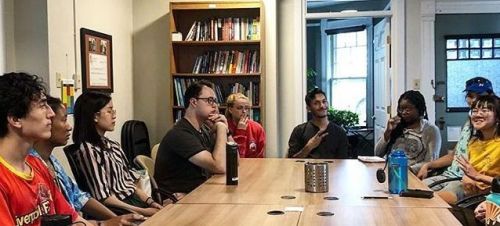
Changemaker Workshop Series
The CCE offers a workshop series that aims to build changemaking skills, and generate dialogue around self, community impact & issues, and theories of social change. This is a developmental, 4-year series that offers one workshop per block geared toward students in each cohort, so students can take blockly workshops throughout their CC experience in a developmental progression. In workshops, students connect theory to action by reflecting on and applying content to their community engagement experiences. This is also our curriculum for the CCE's signature programs - Bonner Fellows and Community Engaged Scholars.
Incorporated Strategies
- Ensure that engagement opportunities are accessible to all students
- Cultivate communities of learning and curriculum alongside the classroom
- Promote intentionality, reflection, and self-inquiry
- Implement signature programs that model best practices of engagement
Select a Specific Tenet:
Mobilize Engaged Citizenship
Integration with Learning and Research
Prepare for Intentional Engagement
Facilitate Collaboration
Resources for Community Partnerships
Learn From and With Community

